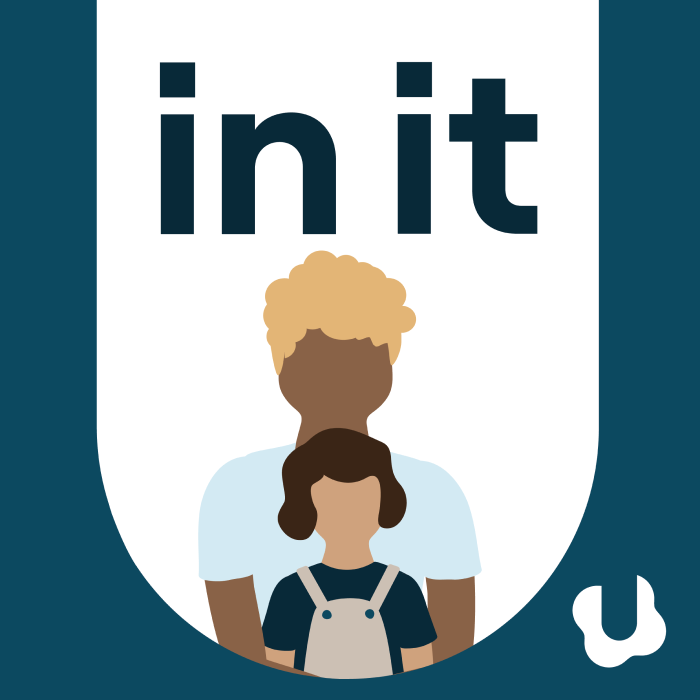Stay in the know
All our latest podcasts delivered right to your inbox.
There’s a lot of misinformation out there about ADHD. The biggest (and perhaps most hurtful) myth of all? That it’s not a “real” condition.
On this episode of In It, hosts Amanda Morin and Lexi Walters Wright hear from families who’ve muddled through explaining their child’s ADHD to family and friends — and dealt with frustrating reactions. They also hear from expert Stephanie Sarkis, PhD, about how real ADHD actually is. (Spoiler for ADHD deniers: You can actually see it on a brain scan.)
Related resources
Episode transcript
Amanda Morin: Hi. I'm Amanda Morin, a writer, recovering teacher, and parent advocate.
Lexi Walters Wright: And I'm Lexi Walters Wright, community manager for Understood. And we are "In it"! "In It" is a podcast from Understood for Parents. On this show, we offer support and some practical advice for families whose kids are struggling with reading, math, focus, and other learning and thinking differences. Today we're talking about that moment when someone asks us, "Is ADHD even real?" This is something that comes up all the time for parents. It is such a common topic in our Understood community forums.
Amanda: And in part, that's because there's a lot of misinformation out there about ADHD, which stands for attention-deficit hyperactivity disorder. And the biggest myth is that it's not a legit condition.
Lexi: Never mind that there's a lot of brain science behind the ADHD diagnosis. There are still people out there who aren't so sure. So we put out a call for parents to tell us about your experiences.
Caller: So, the one that I've been hearing lately the most often is that ADHD is a made-up disease by the government and big pharma in order to push acid onto kids of African American descent. Obviously there are a whole lot of issues with that specific clapback.
Caller: I have two boys who have ADHD and have heard all the ridiculous things that people have to say. My favorite is always when people try to play down the diagnosis in an attempt to make me feel better. Not that I need to be made to feel better. So I often get told things like, "Oh, they'll grow out of it." Or, "It's not really a diagnosis." Or my favorite: "They're always far too quick to diagnose ADHD."
Caller: I am a mother of a 10-year-old girl who has ADHD. And one time this came up in conversation with a colleague, and when I mentioned that my daughter has ADHD, my colleague said, "Oh, that surprises me." And so I said, "Why does that surprise you?" And she said, "Because I didn't think that you would want that label." And so I kind of took a deep breath and said, "Well, I don't see it as a label. It's actually a neurological condition." And then I explain a little bit more.
And I think she was absolutely not trying to be hurtful or even realize that her comment may have been hurtful. She was simply trying to understand. But I think what the comment put on display is a misconception that a lot of people have and perhaps that I had before I was forced to learn about ADHD because of my daughter's diagnosis, which is a perception that it's not a real medical diagnosis. It's something fabricated as an excuse for either attention or to explain away bad behavior.
Lexi: I mean, is this a question that you get?
Amanda: Yes. And as you know, Lexi, I have both a son and a spouse with ADHD.
Lexi: So when does it usually come up? Like what are the circumstances?
Amanda: Yeah. So Lexi, it's not always a direct question. And sometimes it's that verbal side-eye from another parent, like when they're watching my awesomely delightful and scattered son super fast on the playground. He bumps into people. He interrupts conversations, and I'll be like, "Whoa, he is having a really rough day with his ADHD." And the other parent'll say something like, "Does he really have ADHD? He's so focused when he's at our house playing with Legos" or whatever.
Lexi: I get a sense that this is maybe a fraught question for you.
Amanda: Yeah, it can be. You know, when I get asked if ADHD is real, it feels like I'm being judged. It feels like people are commenting on my parenting. It feels like they're passing judgment on whether I can keep my kid under control. And it sometimes feels like they're watching me make excuses for my child when I'm not making excuses. I'm just telling it like it is.
Amanda: I want to know, so if someone asked a parent like me, a parent who has a child with ADHD, whether ADHD was real, how would you recommend that that parent answer the question?
Stephanie Sarkis: I would say, "Let me know why you're asking that." First I want to know because that's kind of rude.
Amanda: Dr. Stephanie Sarkis is a psychotherapist who works with children and adolescents. She's one of Understood's experts.
Stephanie: So first I'd want to know, "Tell me what your concerns are." I mean, maybe it's a grandparent. Maybe it's an aunt or uncle.
Amanda: Yes.
Stephanie: You know, so I mean, that makes sense. But if it's just some random person, you know, from like PTA or something, that's rude.
Lexi: In working with parents, have you found effective ways to help a parent understand that this is not just laziness, or distraction, or, you know, a troubled kid?
Stephanie: I meet parents where they're at. And what I mean by that is I ask them, "Tell me what you know about ADHD. And where were some places that you got the information from? What questions do you have?" Now sometimes, it's just that, just by accident people have gone onto websites that don't have a lot of valid information. Sometimes a family member took medication for ADHD and they may have had side effects. And so what I talk to parents about is, "Let me look at what you've learned about it and let me tell you what I know about it. Let's put our heads together and come up with a solution that best helps your child."
And also I would explain that there's a difference between can't and won't. It's not that your child doesn't want to do their chores. It's that they can't remember multistep tasks. And there's a big difference between can't and won't. And we really need to focus on the fact that ADHD brains can't do some things, rather than looking at it as a won't, which is a willful behavior.
Caller: My son who's 11 is diagnosed with ADHD, and we were at a family visit. And another family member was trying to, for some reason, kind of take over the parenting of my son because he wasn't going to bed, or he was having a meltdown, or he was just generally having a hard time — overtired, overstimulated. And afterwards, we had a discussion about it, and this family member said, "Well, you know, I think that was just a little more discipline and a little bit better parenting. He's going to be fine."
Caller: So that kind of stuck with me for a lot of years and kind of changed my relationship with that person, probably forever.
Lexi: Stephanie, can scientists actually see ADHD in somebody's brain?
Stephanie: You can actually see it on scans, yeah, and functional MRI — it's called an fMRI. What that means is it's an MRI done while you're doing stuff. So there are studies where people are doing tasks that involve their executive functions. The first executive functions are in the frontal lobe of your brain, and they do things like planning, thinking ahead, learning from consequences. So what happens is, we have people do these tasks while we're scanning their brains.
And you can see in ADHD people, when they're given a task that is of their executive functioning, their brain does not connect. Their neurons do not communicate as well as in the non-ADHD brain. And also, parts of the ADHD brain are more active where they kind of shouldn't be. So people are paying attention to stuff they shouldn't be paying attention to, and not paying attention to the stuff that they should be.
Amanda: Now I want to go have an fMRI, but I'm not going to.
Stephanie: Yeah. And it's not — fMRIs aren't standard parts of treatment. I get asked that a lot by parents. We don't have those as standard treatment, but in studies they do use them.
Amanda: Right. So if most parents aren't going to get their child a brain scan, what are the other ways that we can tell that someone has ADHD?
Stephanie: There are tests called executive function tests, and those are computer tests that you are given where you have a stimulus or a thing on the screen. And you're asked to press a space bar click or the mouse when you see the thing, and not when you don't see the thing. And one of the things that the executive function tests look for is your ability to have selective attention. Selective attention means that you're focused on the thing on the screen and you're blurring out everything else. So, that's something that people with ADHD have difficulties with.
Also at your doctor's visit, you may be asked about a history of symptoms of your child or yourself. And you can fill out scales about that behavior. So those are ADHD rating scales. And we also ask a lot of questions about, you know, how things are at school and how things are at home and how they differ. We also ask what's worked in the past, too, for ADHD, because that makes a big difference in how we might be able to help you. We want to focus on what's worked well so we can get you further on the path to where you want to be.
Lexi: So, Amanda. I want to know: How do you know that ADHD is real?
Amanda: How do I know that ADHD is real? I know that ADHD is real because we have dinner and my son has slid under the table, and I'm just like, "Hey, can you sit up here? We're good, you know, your food's up here?" I know that ADHD is real because my husband sets a timer to get my son's bedtime routine going. And it's for both of them not just for my son. I know that ADHD is real because we have chosen, we made the choice, to use medication with our son. And when he doesn't take it, he's very scattered and he can say so. He can tell us that his brain is moving too fast.
So we know it's real, because when he takes that medication, he slows down a little bit, too, and he can respond to other things that we're doing as well as medication. He can respond to lists and checklists and prompts, and things like that. And I know it's real because I feel like I am the only person in my house who's taking care of the executive functioning, like organizing and planning and all of those things.
Amanda: Yeah, I mean there's just no way to not know it's real in our house.
Caller: I realized ADHD was real when I had my daughter. She had these issues — not just focusing attention. She just has a whole lot of hyperactivity. And, you know, being that she's a 25-weeker, her brain development was truncated by the fact that she came out so premature.
Andy: My name is Andy. I'm a dad and a psychologist who works with families of kids with learning and thinking differences. I also have ADHD myself.
Andy: When people say that they don't believe in the existence of ADHD, for me it's like denying the existence of gravity. I spend so much time of my life describing unique brains to parents, teachers, and students. Also because my brain has this condition, if I could sort of animate or create an image of my brain, there would be butterflies and hummingbirds and sort of cats wandering around this really rich, colorful landscape.
The challenge is that, you know, my brain is working so hard to try to sort and put this information together, and you know, it's harder at times to find all the treasures and information that's there. It's not always orderly or predictable or responding the same way as other people. But ultimately, when I've learned my strategies and I've taught strategies to the kids I work with, they're capable of doing as much or even more than other people who don't have this condition.
Lexi: Amanda, we've been talking about some of the really unhelpful things that people say when they learned that your child has ADHD. I have this horrible feeling that I may have said some clueless things myself at one point or another, simply because I didn't know better at the time. So for people like me — people who really want to understand and be supportive — do you have any advice?
Amanda: What I appreciate about what you just said is that you want to understand. And that's the part that I think is really important — the people who want to understand. And I think there are a lot of things that people say when they don't understand that come out poorly. Things like, "Oh, I don't want my kid to have that diagnosis. I don't want him to be labeled."
Lexi: "Better you than me."
Amanda: "Better you than me." Or "I don't know how you handle this." Or one of my least favorite phrases is, "You know, you don't have anything more than you can handle." And I'm always thinking I have more than I can handle all the time, right? But I think that just saying, like, "I want to understand this" and just saying sometimes — and you do this a lot — I think you say to me, like, "I don't think I'm going to get this right. But I have a question for you."
And I think just naming that is really important. It helps me feel a lot less judged when people are saying to me, "I'm just really curious and I'm trying to figure this out. And I want to do what I can for you." And sometimes just not saying anything is really helpful.
Lexi: Right. I wonder — and I'm just thinking about interactions that you've had with other parents of kids who have ADHD — whether or not they know that your kid has ADHD. Is it, I mean, do you ever encounter those times where you're running through your head how you can bring up whether or not ADHD is an issue for another family?
Amanda: I tend not to ask, because I think they'll tell me if they want to tell me. But sometimes I'll give them the, you know, "Hey this looks really familiar," and that will give them the opening. Right. "Oh, this is really familiar, we deal with this in our house a lot." Or "He looks a lot like my kid right now." And it gives them that opening if they want to say anything, they can say something.
Lexi: That's so smart.
Amanda: So, Stephanie. People like grandparents, who — like it's maybe not something that's totally familiar to them — where you can't limit that interaction. What's the best way to sort of navigate that, when grandparents are saying, "Well we didn't have ADHD back in our day."
Stephanie: It's OK if they don't believe that ADHD is real. But, you know, as parents, we choose to believe the research and believe the science that says this is a real thing, and we're going to treat it like that. And I think it's important to sit with grandparents and say, "OK, so these are the things that we do with our kids," because it's really important the grandparents and parents are on the same page."
And these are the things that we would appreciate if we stuck with." Like if it's really important that your kids get outside for a certain amount of time, just to go out and play because being outside helps the ADHD brain kind of calm down, you can say to the grandparents, "Well, I'd really like it if the kids could be out like two hours a day playing — unsupervised playing, just free play."
Amanda: Yeah, that's a really good way to handle that. I like that. You don't have, you know, you don't necessarily have to say, "I believe this is real," but here's what we're doing to help this child. I love that. I think it's a great idea. Thanks so much Stephanie I really appreciate your time.
Stephanie: Oh, you're welcome. Anytime.
Lexi: Can you think of a time when your son's ADHD came up and someone handled it well?
Amanda: Definitely. One of the best experiences I ever had was — so I always worry about taking him to playdates, because I never know whether to say something. Do I not say something? Do I drop him off? Do I stay? Do I hover? Like all of those kinds of things. And I brought him to a playdate. And I started to say, I said, "You know, I just want to let you know he has ADHD." And the mom said, "Oh yeah, we've got that in our house too. We've got this handled." And I just went, whew, like that was such a relief. I felt like she knew how to handle this. And I felt like she was saying to me, "Go to the grocery store. Get your errands done without your kid. We've got this. We're in this with you."
Lexi: Did you feel less worried about how he was going to do on a playdate, or did it alleviate needing to even think through how he would do?
Amanda: I wasn't worried about how he would do. I was worried about how he'd be perceived, and that's what changed for me — I didn't have any concerns about the perceptions of the parents in that house anymore.
Lexi: Yeah. Wow. Do you still playdate with that family?
Amanda: All the time.
Lexi: You've been listening to "In It," a podcast from Understood for Parents. Our website is Understood.org, where you can find all sorts of free resources for people raising kids with learning and thinking differences.
Amanda: We also want to hear what you think of this podcast. "In It" is for you. So we want to make sure you're getting what you need.
Lexi: Go to u.org/podcast to share your thoughts and find resources. That's the letter U, as in Understood.org/podcast.
Amanda: And if you like what you heard today, please tell somebody about it. Share it with the parents at your bus stop. Tell your special education support group. Or send a link to your child's pediatrician. You can also go to Apple podcasts and rate us, which is a great way to let other people know about "In It."
Lexi: You can subscribe to "In It" on Apple podcasts. Follow us on Spotify, or keep up with us however you listen to podcasts. Between episodes you can find Understood on Facebook, Twitter, and Pinterest. Or visit our website, u.org/podcast. That's the letter U, dot org, slash podcast.
Amanda: And come back next time when we'll be talking about what happens when someone asks your child with dyslexia to read out loud.
Amanda: Did you count until you got to your paragraph?
Future guest, Jillian: Of course I counted. I still do that now. I'd count till you get to your paragraph. I'd go to the restroom when it was like two people before me and then stay there. So I'd know that it would be, like, two people after me.
Lexi: If this rings a bell and you have a story to share, you can call in and leave a voice message that we just might use on the next episode of "In It." You'll find that number at u.org/podcast.
Lexi: "In It" is a production of Understood for Parents. "In It" is produced by Blake Eskin of Noun and Verb Rodeo and Julie Subrin. Mike Errico wrote our theme music. And Laura Kusnyer is the director of editorial content at Understood for Parents.
Amanda: Thank you so much for being in it with us, and thanks for listening.
Hosts

Gretchen Vierstra, MA
is the managing editor at Understood and co-host of the “In It” podcast. She’s a former educator with experience teaching and designing programs in schools, organizations, and online learning spaces.
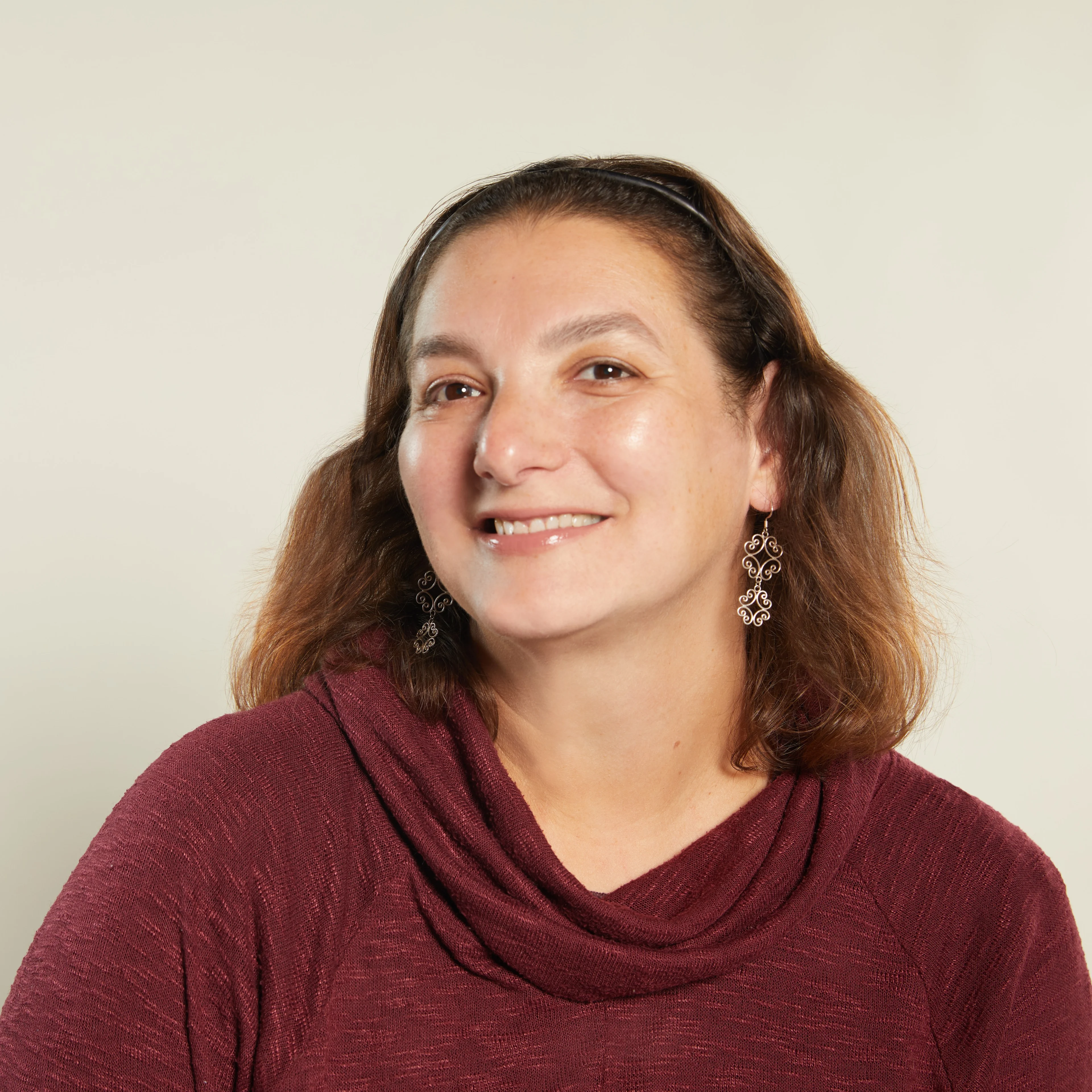
Rachel Bozek
is co-host of the “In It” podcast and the parent of two kids with ADHD. She has a background in writing and editing content for kids and parents.
Latest episodes
April 25, 2024
Learn about common reasons families might look for a special education attorney and what their other options are.
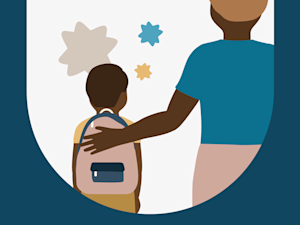
April 11, 2024
Learn ways to advocate for your child at school while maintaining a good relationship with their teachers.
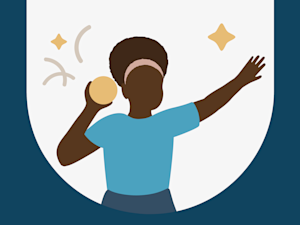
March 28, 2024
The track and field gold medalist shares her story and talks about ADHD, dyslexia, and building confidence.

March 14, 2024
The hosts interview kids’ book author Lindsey Rowe Parker. She talks about her new picture book about sensory differences in kids.
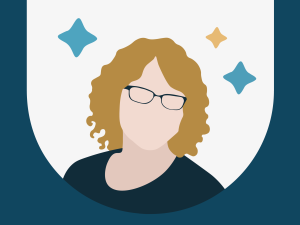
February 29, 2024
Understanding what a language disorder means for your child can be overwhelming. Here’s help from an expert.
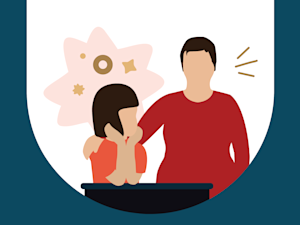
February 15, 2024
Talking with your child about their diagnosis of a learning and thinking difference can be tough. Get advice from an expert.
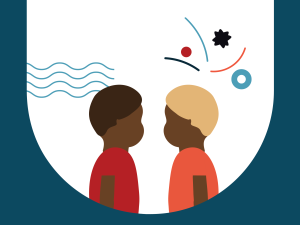
February 1, 2024
How can you manage the challenges of having one child who learns and thinks differently and one child who doesn’t? Get advice from an expert.
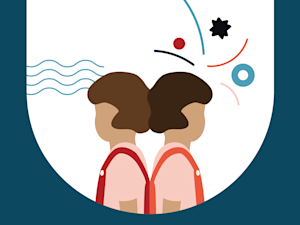
January 18, 2024
Any sibling relationship can be hard to manage. But what happens when one of the siblings has a learning or thinking difference? Here’s one mom’s story.
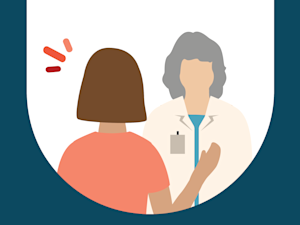
January 4, 2024
Overwhelmed by talking with your child’s pediatrician about ADHD or learning differences? These tips can help.
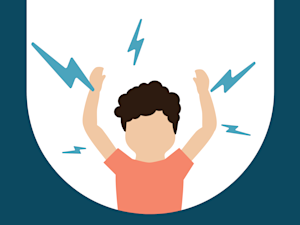
December 14, 2023
Tantrums and meltdowns are challenges all parents face. Get tips for projecting calm when kids and teens have tantrums.
